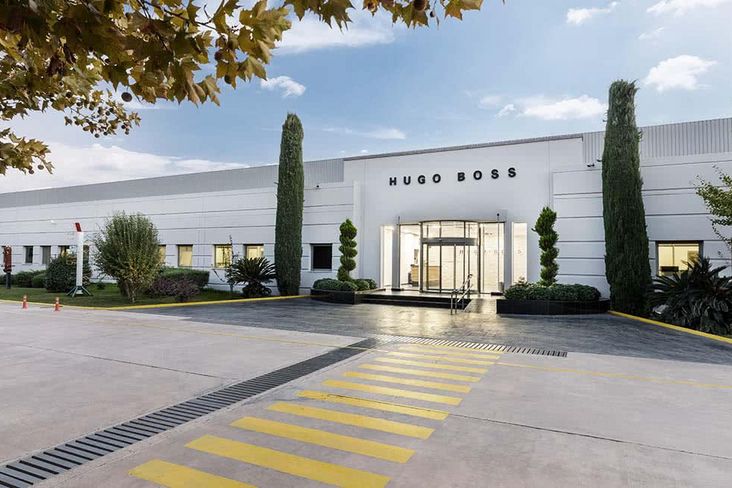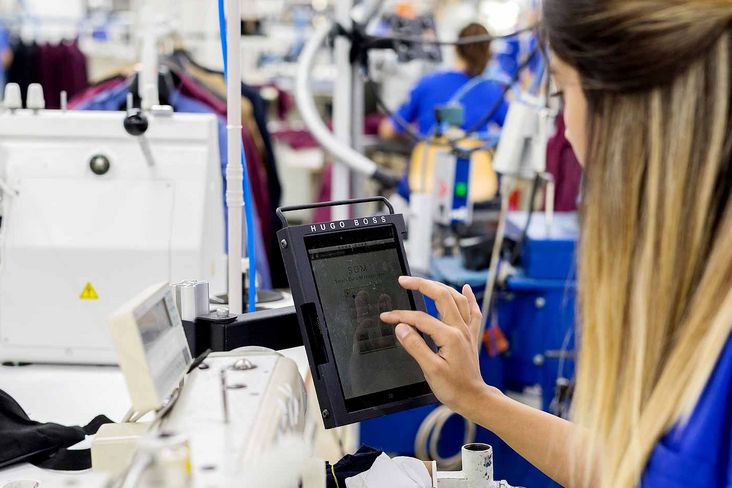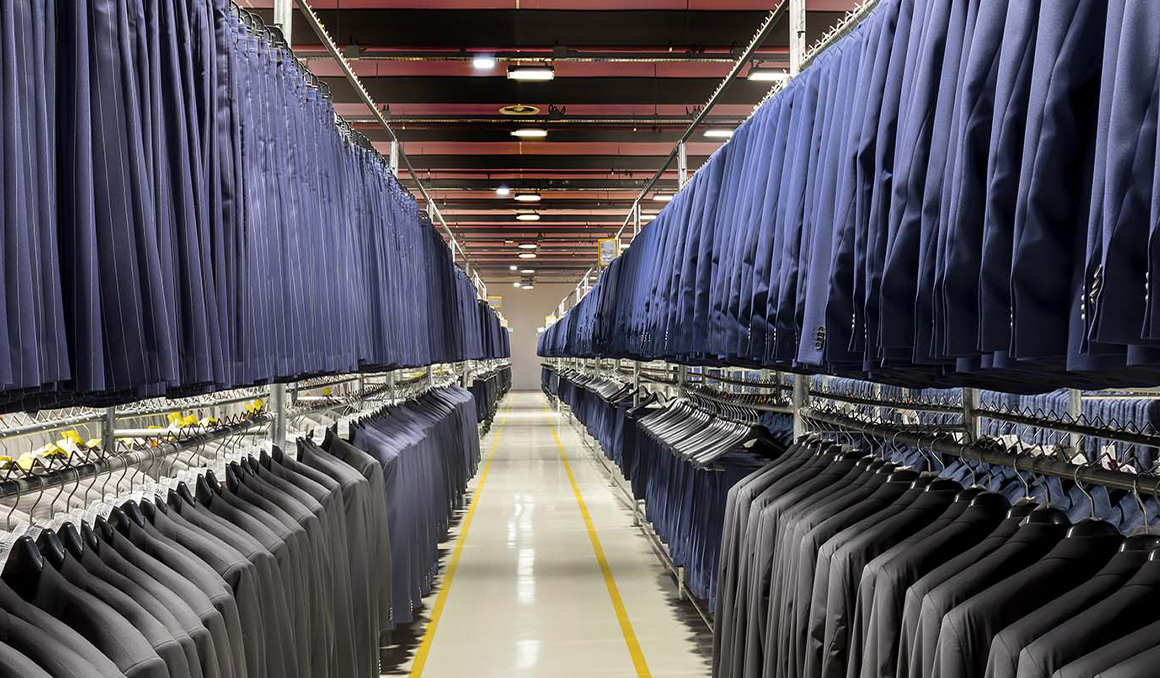
Industry 4.0 in practice
Izmir, Turkey is home to HUGO BOSS's largest production location. Since 1999, the company has primarily produced high-quality business wear products here. On an area of around 65,000 m2, suits, jackets, shirts and coats are produced, and almost 4,000 workers are employed in Izmir. However, the factory is not only the largest HUGO BOSS production facility, it is also the most high-tech, as the company demonstrates what Industry 4.0 looks like in practice here, with networked machines, extensive data analysis and flexible processes.
It doesn't take an expert to see that digitalization is permanently changing all areas of society: day-to-day life and communication, art and culture, as well as the economy. And, of course, the fashion industry. Production already benefits from the use of new technologies. Many aspects of factories today are automated and self-optimized. Processes are more intelligent, more dynamic – the smart factory is already a reality.
Automation and self-optimization
The term 'smart factory' describes a simple, basic principle: machines and software are always more capable when they are automated and networked. This allows them to communicate with each other and exchange data, which is then analyzed in order to uncover potential for optimization.
Products are consistently produced more efficiently from planning to logistics.
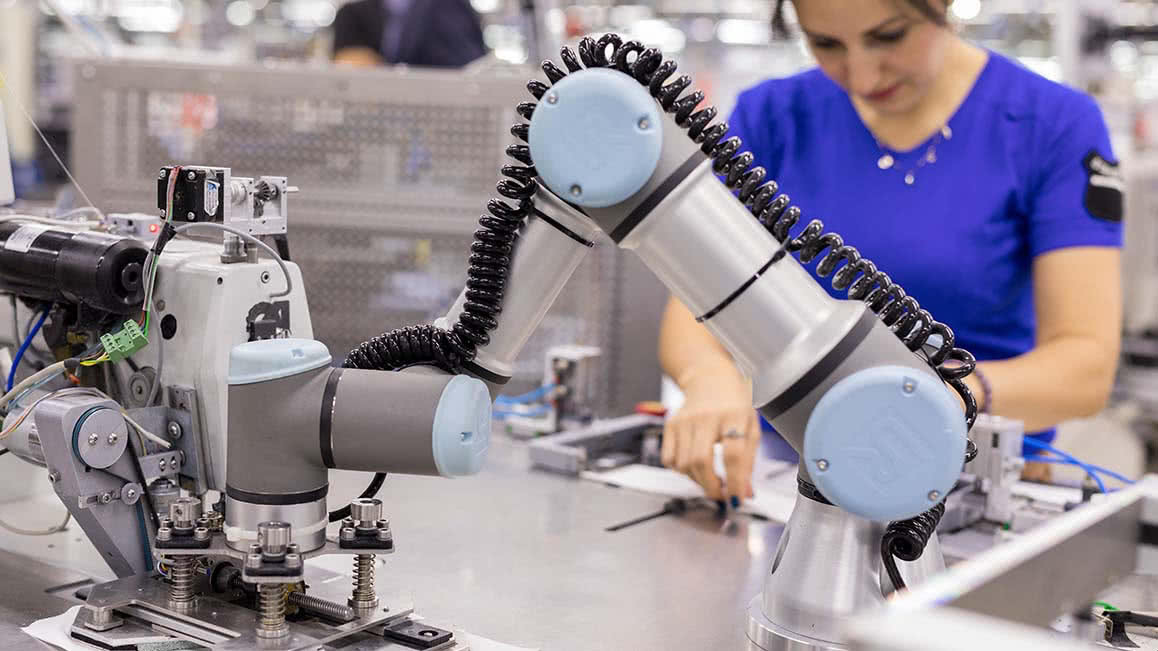
The advantages are plain to see
The 'smarter' the factory, the greater the advantages. Costs are reduced, while the quality of products increases – and ultimately, production becomes more and more reliable thanks to this automated intelligence. At the same time, more dynamic and flexible processes thus become possible. The complexity of production sequences drops and sustainability goals are supported.
Smart factory in Izmir
The process of converting the factory in Izmir into a smart factory was set in motion back in 2015. This transformation took place in three important steps:
- Digital transformation: Employees, machines and processes are networked with each other. This makes it possible to map them digitally, creating a 'virtual twin' of the factory. It sounds like science fiction, but it isn't. Using more than 1,600 tablets installed throughout the location, production data can be tracked in real time, meaning that production can be managed optimally.
- Robotics and automation: New technologies are introduced to support employees. At the same time, a 'TechnoLab' also develops semi- and fully automated machines and robots to further optimize processes.
- Artificial intelligence: Data is collected from all over the factory. Analysis of this data provides information about where there is potential for improvement, or even where risks arise. This enables machines, resources and processes to be managed based on well-founded, digital forecasts.
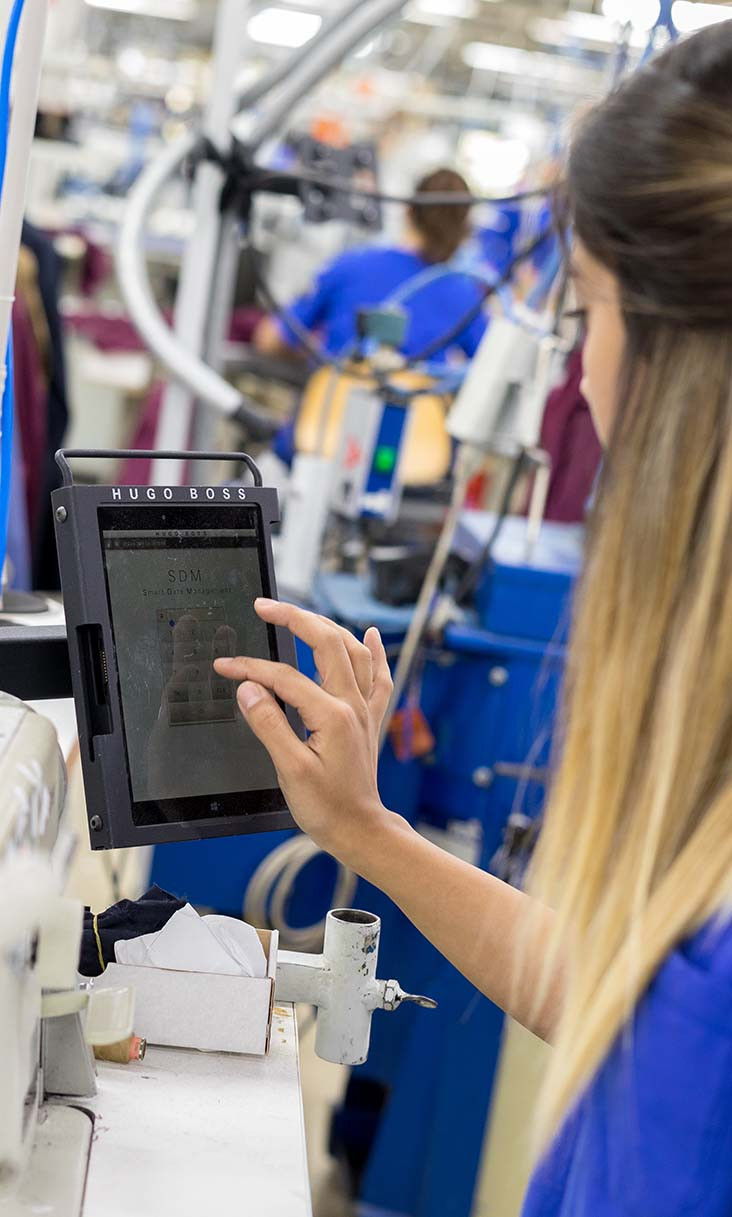
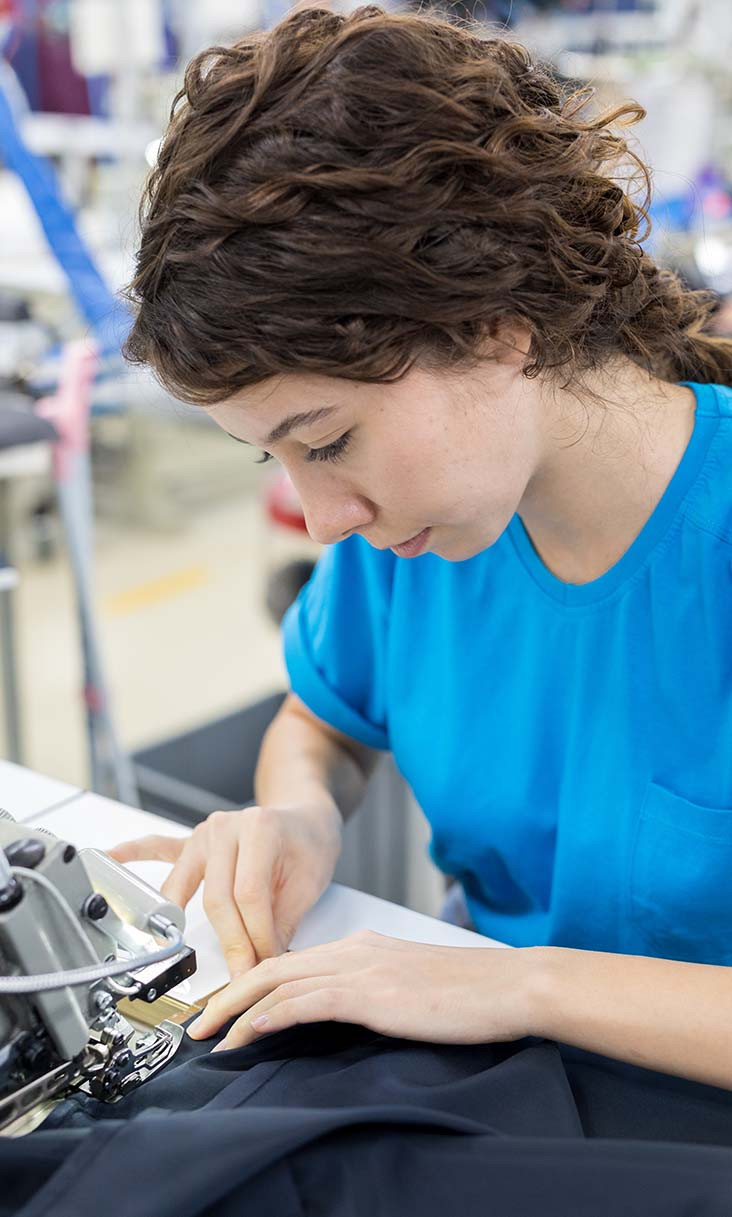
Distinction for a pioneering role
It has not gone unnoticed that HUGO BOSS innovation is breaking new ground with the smart factory. Thus US-based market research and consulting company International Data Corporation honored the production location with the first prize in the categories "Internet of Things" and "Big data and artificial intelligence". In particular, it stressed the pioneering role of HUGO BOSS in data analytics and in forecasting production errors.
Impossible without the employees
It goes without saying that this transformation would not be possible without the workers. Therefore, the staff was a key factor in the transformation into a smart factory from the beginning. Technologies are mainly introduced to support and facilitate employees' work processes.
Actively integrating employees is just as important when mapping out the future course. Every employee is encouraged to add ideas. This holistic approach is the only way the smart factory can be successful in the long term. Izmir not only demonstrates where digitalization is heading, but also what employee engagement and development can achieve.

